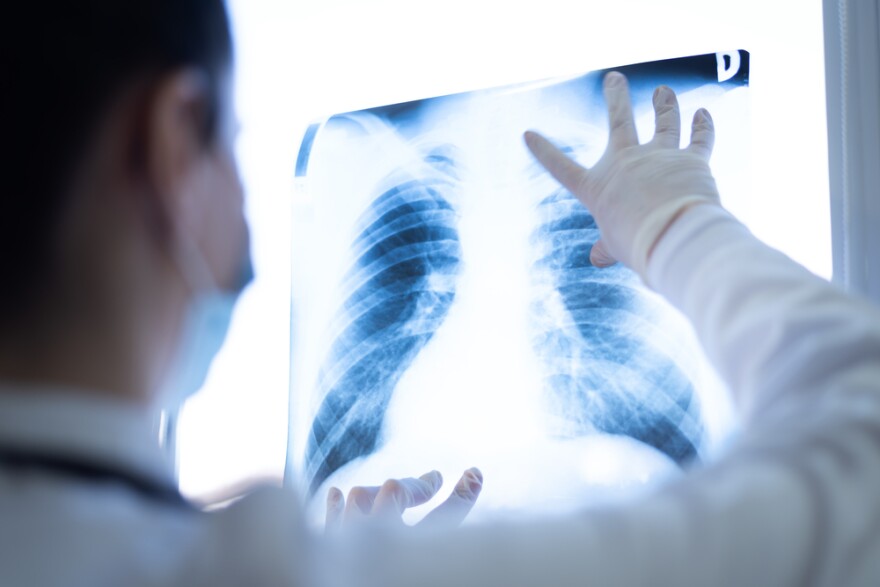The state health department says lung cancer is the most common cause of cancer death in Texas.
Older patients tend to get it most, but a new study finds younger women between 35 and 54 getting lung cancer at rates higher than men of the same age group.
Pulmonologist Dr. Tony Su with Texas Health Arlington Memorial Hospital offers possible reasons to KERA’s Sam Baker.
One of the theories is that women are slower to quit smoking. Men tend to be more successful for some reason. Are women more exposed to secondhand smoke in the home? That's a possibility.
How so?
Maybe there are more smokers in the family. Let's say you're not a smoker if you're a woman, and then you have all this smoking exposure. These are all theories, of course.
What are other reasons that might account for this increase?
Possibly the genetic discrepancy where women may have more difficulty in repairing DNA damage from cigarette smoke or maybe perhaps the cigarette smoke has activated genes that promote cancer growth in women. That's different than men. These are all theories. Nothing that's proven.
Well, the disparity between women and men isn't that great. I understand it's just a few cases more. So why is it that researchers want to know more about this, though?
Lung cancer typically occurs in older men who have been smokers or current smokers. And so everybody has left the women behind And thinking that it may not happen to women or doesn't happen as much, but that it's been proved that there are women that are more susceptible for some reason in a younger age group.
But this doesn't all go back to cigarette smoking, does it?
That's right. So, 80% of lung cancers are caused by cigarette smoke. However, up to 20% of women who develop lung cancer are non-smokers. So, it's you can't blame it on cigarette smoking.
As I understand it, lung cancer for the longest time was something that often went undiagnosed until later stages. Are we any better at diagnosing it earlier now?
Yes, we are, actually. We have been able to use low-dose CT lung cancer screening to find out small cancers. If patients are not symptomatic but have high-risk factors.
What would be the high-risk factors?
Anybody who's aged 50 to 80 who is either a current smoker or had smoked a pack a day for 20 years or so, what we call pack year history. The number of packs per day you smoke times the number of years you smoke also makes a difference in terms of your risk.
But if you're starting to see an increase among women 33 to 54, what needs to happen? An increased awareness about lung cancer?
What we need to do is just promote lung cancer screening among women like we did with breast cancer. We just need to inform women, and also physicians, that we need to do this for women as well.
And I guess in this case, though, for younger women as well.
Correct. So if I have an active smoker that is in that range and may have some maybe mild symptoms, such as a persistent cough or recurrent infections or something that, you know, usually is treated by a primary care doctor and maybe a family history of lung cancer. You might think about getting a lung cancer screening CAT scan.
But I'm wondering if you're also having to deal with misperceptions about lung cancer in the first place – the belief out there (that) it's something mostly older people get. So if you're having a cough or something, it's not something you think about to begin with.
That is correct. So, in younger people, if you had to guess someone who has a persistent cough, it's probably not lung cancer right now. But if you have a persistent cough and you've treated it and it doesn't go away, you might have to look deeper.
RESOURCES:
Younger Women Are Getting Lung Cancer at Higher Rates Than Men
American Cancer Society: More U.S. Young Women Diagnosed With Lung Cancer at a Higher Rate Than Young Men, New Report Shows; Increase Extends to Older Women





